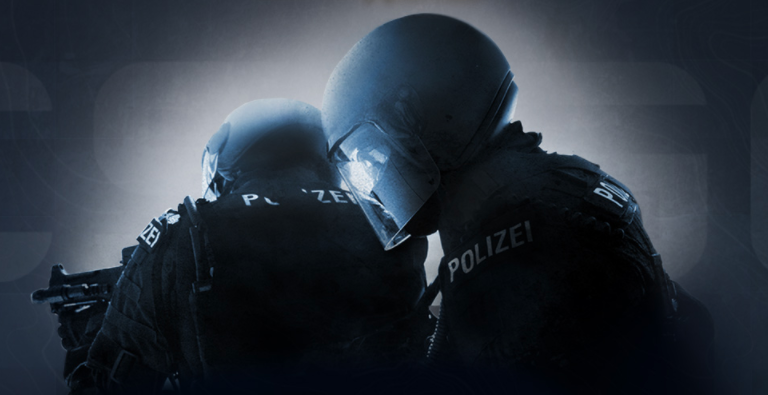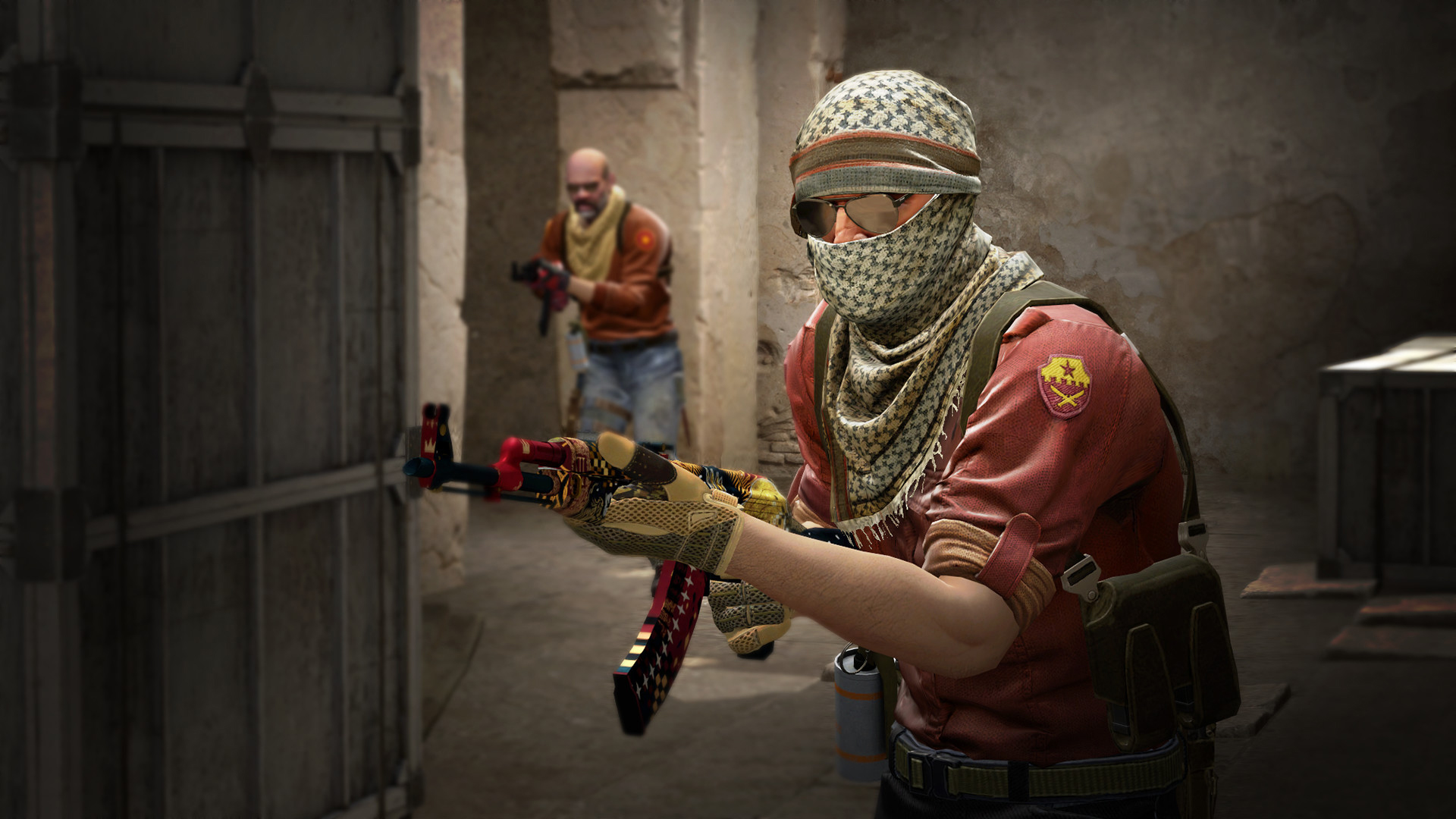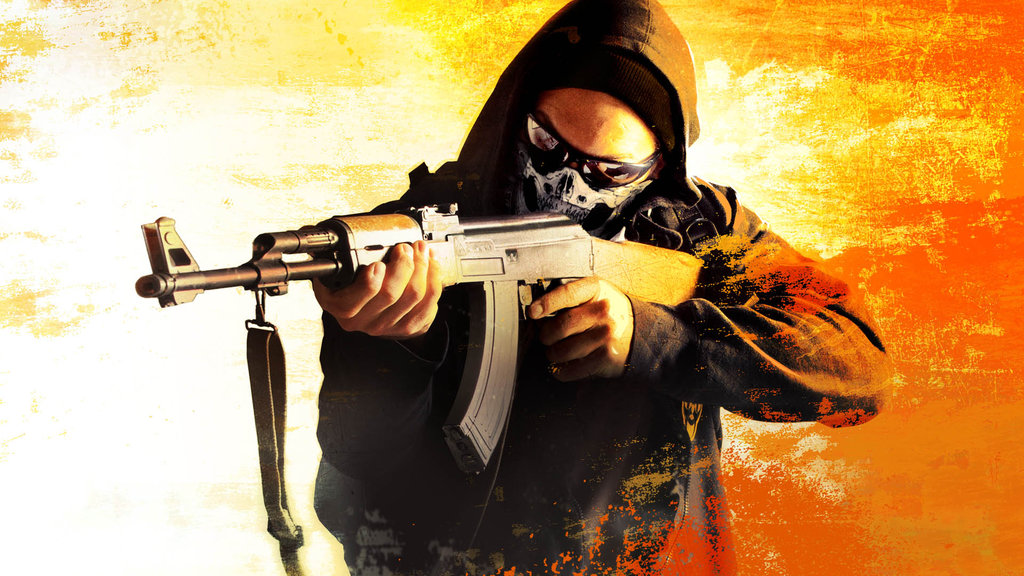It's messed-up and weird that CS:GO is just gone
Another one bites de_dust.

Valve has launched Counter-Strike 2 as part of which it has mothballed Counter-Strike: Global Offensive, the latter being arguably the most popular competitive game in the world and definitely the most popular on Steam. From CS2's first announcement Valve has been clear that this was the next step for the series, going so far as to name CS2 "the CS:GO killer" in its Twitter bio, though that playful phrase has since been replaced.
But it's still weird to see that CS:GO, the most-played game on Steam since 2014, has been scrubbed from Steam. 11 years after its launch in August 2012, CS:GO no longer has a Steam page listing. When you search Steam for "csgo," Counter-Strike 2 is the top result. The old Steam page URL for CS:GO now redirects to CS2's.
CS:GO has been retired, it hasn't been completely wiped from existence. There is a mostly-official way to keep playing it. CS:GO is playable as a "beta" build within the Steam Properties menu for CS2, where it's labeled unceremoniously as "csgo_demo_viewer- 1.38.7.9." You can't play competitive matchmaking, but you can play offline with bots.
Was it the wrong decision? It's hard to say it was, and there's one incident in CS history that is especially useful context to this: the launch of CS:GO. CS:GO at launch was not quite the game it became, but it instantly split the playerbase between those that just wanted to stick with CS1.6 (or even CS:Source) and those who moved onto CS:GO. It wasn't a great time in the CS community and, while CS:GO eventually overcame those choppy beginnings to become the de facto Counter-Strike experience (essentially when it introduced skins and item boxes in 2013), it was seen by some for a time as an interloper.

You can understand why, with the game now operating on an unimaginable scale, Valve would rather be a little bit brutal than try to please everyone. Fact is the developer bent over backwards to ensure that the features that mattered in CS:GO made the transition to CS2, mainly when it comes to weapon and agent skins, because the loss of in-game items would have proven incredibly unpopular, maybe even untenable. That was also a death knell for CS:GO, however, because there's no way the skins market could keep operating across two separate titles when future CS2 skins are clearly not going to be retrofitted to CS:GO.
So you can see the rationale, even agree that from Valve's perspective and arguably the wider community perspective this was the only way to go. The king is dead, long live the king, and on we go.
Life's Work
"CS:GO has been an integral part of my life since I was 13 years old."
Maxon
That all rubs up, however, against the fact that CS:GO has been such a part of peoples' lives for so long. I doubt that Maxon's Change.org petition to "Bring back CS:GO as a standalone game" will meet with much success, but their justification reminds us of how many younger PC gamers grew up in this shooter: "CS:GO has been an integral part of my life since I was 13 years old. From playing on a low-end laptop during my early teenage years to now having a full gaming setup, this game has been there for me through thick and thin."
That comfort and familiarity, the sheer time spent, not to mention the money invested, makes CS:GO feel meaningful to players. Even if every single aspect of CS2 was an improvement over CS:GO, and that is far from a given, it cannot on day one replace that connection with longstanding players.
Keep up to date with the most important stories and the best deals, as picked by the PC Gamer team.
When I think back over my time in CS:GO there are plays I remember, for sure, and the camaraderie and the various people I played with over that span. I remember when Valve introduced tournament item drops and my casual relationship with the Majors became all of a sudden very intense, Twitch chat taken over with endless (and superstitious) "drop" comments, and I went headfirst into extremely low-stakes skin gambling (i.e. gambling crap skins to win other crap skins, not the money side of it).
I remember a friend and I agonising one night over whether to stick £20 each into case keys or just buy some skins we wanted: I ended up buying a StatTrak AK-47 Case Hardened for about £13, a skin that many years later is now worth an unbelievable £500+. No, I'll never sell it. It reminds me of that friend, it reminds me of that night, and I've been using it in CS:GO ever since. I'll pass that gun onto my children.

The Journey
"We don't think of Valve, as one of the pillars of PC gaming, as a group of people that all but delete games."
We're used to this sort of thing happening in modern multiplayer games like Fortnite or Destiny, which regularly remove substantial components, partly in order to combat file size bloat. Call of Duty: Warzone made its transition to Warzone 2.0 by nuking the game's map, Verdansk, in an in-game event in 2021. You can't return to the 2019 versions of Fortnite, PUBG, Apex Legends, or Rainbow Six: Siege. We've written a lot about Overwatch's shaky baton-pass to Overwatch 2. This isn't a universal comparison though: Despite the fact the Bungie regularly cuts material from Destiny 2 and places it in an inaccessible Content Vault (possibly to return in the future), the studio hasn't pulled the plug on the original Destiny, which you can still buy and play today on last-gen consoles.
We don't think of Valve, as one of the pillars of PC gaming, as a group of people that all but delete games, an act that runs contrary to the spirit of this open platform.
CS:GO was a part of our lives and we've all been with it so long that you think back on those times like a journey. I don't want to overblow things but there's almost some tinge of a relationship ending, brushing aside whatever negatives happened on the way, thinking of the good times, facing up to an unknown future. That's probably silly, of course, but I do think there's grief among CS:GO players and it is understandable. CS:GO wasn't just a game for some of us, but a fellow traveller in life, a constant, the always-dependable bulwark that would let you forget about all of life's garbage for a few hours.
There's a surreal and singular experience on Steam called Dustnet, a multiplayer game based on the premise of it being the last surviving example of the most popular CS map, de_dust2. It ponders how these seemingly immortal spaces and games can and do disappear over time and, in the case of something as iconic as Dust 2, what that might mean and to whom. It asks what the meanings of these places are, where we find them, and offers few answers.
It's deeply weird that, yesterday, I could still play CS:GO. And now, community solutions aside, I'll have to jump through hoops to play a version of CS:GO that, really, is not CS:GO: it's no longer the living thing it was until so recently. The CS community are still in those phases of grief that group under bargaining, and denial, and even outright anger. Some have moved on to depression, and eventually we will all find acceptance. But don't think it's overwrought, or undeserved. It's because we all loved CS:GO and, for better or worse, it's no longer there for us.

Rich is a games journalist with 15 years' experience, beginning his career on Edge magazine before working for a wide range of outlets, including Ars Technica, Eurogamer, GamesRadar+, Gamespot, the Guardian, IGN, the New Statesman, Polygon, and Vice. He was the editor of Kotaku UK, the UK arm of Kotaku, for three years before joining PC Gamer. He is the author of a Brief History of Video Games, a full history of the medium, which the Midwest Book Review described as "[a] must-read for serious minded game historians and curious video game connoisseurs alike."

